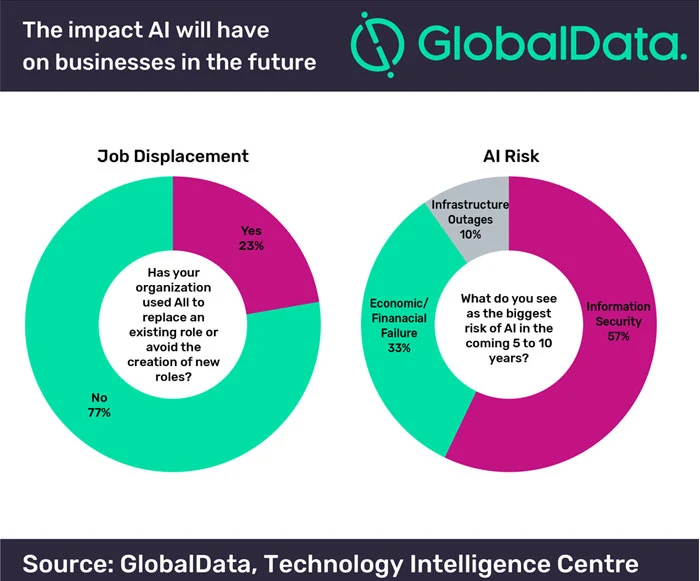 |
The demands for more ethical use of Artificial Intelligence (AI) will increase. The population is now becoming more aware of the disastrous effects of unintended consequences of automation run amok. Simplistic automation that we today find in Facebook, Twitter, Google, Amazon etc. can lead to unwanted effects on society.
Much has been written about Ethics and Artificial Intelligence (AI) and with many organizations looking to adopt some form of AI technology in 2018, business leaders are wise to stay on top of these emerging ethical concerns, according to GlobalData, a leading data and analytics company.
Job displacement is still a key consideration, as is safeguarding data. In a survey conducted by GlobalData, 23% of organizations indicated they had cut or not replaced employees because of AI and 57% indicated security as a top concern.

However, looking ahead, the ethics questions that the AI community will need to tackle are even more controversial. For example, if a child runs into the road, there are questions surrounding how a self-driven car would react to this situation, such as whether it would hit the child or swerve and risk injuring its passenger.
More relevant to business leaders is the concern that an AI infused application may not perform up to the organization’s ethical standards. It may contain unintentional racial bias – say a financial algorithm that is biased against a specific race, or an application that demonstrates a preference towards one gender over another. This raises concerns over what should be done when a phrase that is acceptable when said by one demographic is completely unacceptable when uttered by another. It leads to people questioning whether an algorithm can be trained to reliably make this distinction and what happens when it makes a mistake.
To recall, in order to work on such issues surrounding AI and its impact on society, tech giants namely -- Facebook, Microsoft, Google (and Google’s DeepMind), IBM, and Amazon, have together formed a partnership, in October 2016, and launched a non-profit organization. Called the Partnership on Artificial Intelligence to Benefit People and Society (PAI), the nonprofit organization has been established with an aim of studying and formulating the best possible practices on AI technologies, which can not only advance the public’s understanding of AI, but also serve as an open platform for discussion and engagement about AI and its influences on common people and society.
Rena Bhattacharyya, Technology Analyst at GlobalData, comments: “On the one hand, unintentional results are not the fault of the organization using the AI solution. The responsibility may lie in the data used to train the underlying machine learning model. However, customers are quick to pass judgment. If and when these unintentional biases become public, customers will quickly assign blame to the company using them, potentially with enormous impact to a brand’s reputation.
“Just as CEOs may take the blame for customer data breaches, and as a result may lose their jobs, senior leaders are also at risk of taking the fall when an AI solution implemented by their organization crosses an ethical line. It’s in their best interest to ensure that does not happen as their reputation depends on it.”
Speaking about India, last month India’s IT ministry had constituted four committees to thoroughly study on various aspects of Artificial Intelligence for citizen-centric use.
A mixed notions has been circulating globally about adoption of AI and automation as it was a report by MIT review first that had said that Artificial Intelligence will not eliminate jobs in Asia. However, then it was reported -- in January 2017, prior to MIT review report --- that Indian IT giant Infosys had replaced 9,000 of its employees with automation and AI. Going forward, the Infosys CEO, Vishal Sikka, quit the company eventually in the same year which gave a speculative message that Sikka's strategy of fastly embracing automation and AI was one of the reason that he had to take the exit from Infosys.
Top-featured Image - www.slideshare.net/sparksandhoney/ai-ethics






.png)









 IndianWeb2.com is an independent digital media platform for business, entrepreneurship, science, technology, startups, gadgets and climate change news & reviews.
IndianWeb2.com is an independent digital media platform for business, entrepreneurship, science, technology, startups, gadgets and climate change news & reviews.



